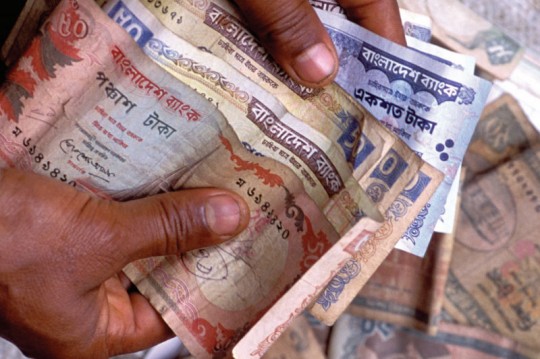Time to fight back against ‘cancer’ of corruption – UN chief
Time to fight back against ‘cancer’ of corruption – UN chief
 No country, region or community is immune to corruption, a serious crime that can undermine social and economic development in all societies
No country, region or community is immune to corruption, a serious crime that can undermine social and economic development in all societies
Secretary-General Ban Ki-moon is urging everyone to do their part to stamp out corruption, which afflicts all countries, undermining social progress and breeding inequality and injustice.
“All of us have a responsibility to take action against the cancer of corruption,” he declares in a message for International Anti-Corruption Day, which is observed annually on 9 December.
No country, region or community is immune to corruption, which is a serious crime that can undermine social and economic development in all societies, according to the UN Office on Drugs and Crime (UNODC).
Although the poor may be marginalized by corruption, they will not be silenced.
This year UNODC and the UN Development Programme (UNDP) have developed a joint global campaign, focusing on how corruption hinders efforts to achieve the internationally agreed Millennium Development Goals (MDGs) and impacts education, health, justice, democracy, prosperity and development.
“When desperately needed development funds are stolen by corrupt individuals and institutions, poor and vulnerable people are robbed of the education, health care and other essential services,” says the Secretary-General.
“Although the poor may be marginalized by corruption, they will not be silenced,” he adds. “In events across the Arab world and beyond this year, ordinary people have joined their voices in denouncing corruption and demanding that Governments combat this crime against democracy.
“Their protests have triggered changes on the international scene that could barely have been imagined just months previously.”
Mr. Ban highlighted the efforts of the UN in helping countries combat corruption as part of its broader, system-wide campaign to help bolster democracy and good governance.
He urged all governments that have not yet done so to ratify the UN Convention against Corruption, which he called a “powerful” tool in the fight against the scourge.
He also called on businesses to adopt anti-corruption measures in line with the convention, noting that the private sector, too, stands to gain enormously from effective action.
“On this International Anti-Corruption Day, let us pledge to do our part by cracking down on corruption, shaming those who practise it and engendering a culture that values ethical behaviour,” stated the Secretary-General.
Numerous events will be held around the world to mark the Day, including concerts, youth events and awareness-raising campaigns.
Time to fight back against ‘cancer’ of corruption- UN
United Nations, New York, December 2011 – Secretary-General Ban Ki-moon is urging everyone to do their part to stamp out corruption, which afflicts all countries, undermining social progress and breeding inequality and injustice.”All of us have a responsibility to take action against the cancer of corruption,” he declares in a message for International Anti-Corruption Day, which is observed annually on 9 December.
…
Added on Dec 15, 2011
###
> United Nations (UN).
 The United Nations was established on 24 October 1945 by 51 countries committed to preserving peace through international cooperation and collective security. Today, nearly every nation in the world belongs to the UN: membership totals 192 countries.
The United Nations was established on 24 October 1945 by 51 countries committed to preserving peace through international cooperation and collective security. Today, nearly every nation in the world belongs to the UN: membership totals 192 countries.
When States become Members of the United Nations, they agree to accept the obligations of the UN Charter, an international treaty that sets out basic principles of international relations. According to the Charter, the UN has four purposes:
- to maintain international peace and security;
- to develop friendly relations among nations;
- to cooperate in solving international problems and in promoting respect for human rights;
- and to be a centre for harmonizing the actions of nations.
###
* The above story is adapted from materials provided by United Nations (UN)
** More information at United Nations (UN)




















